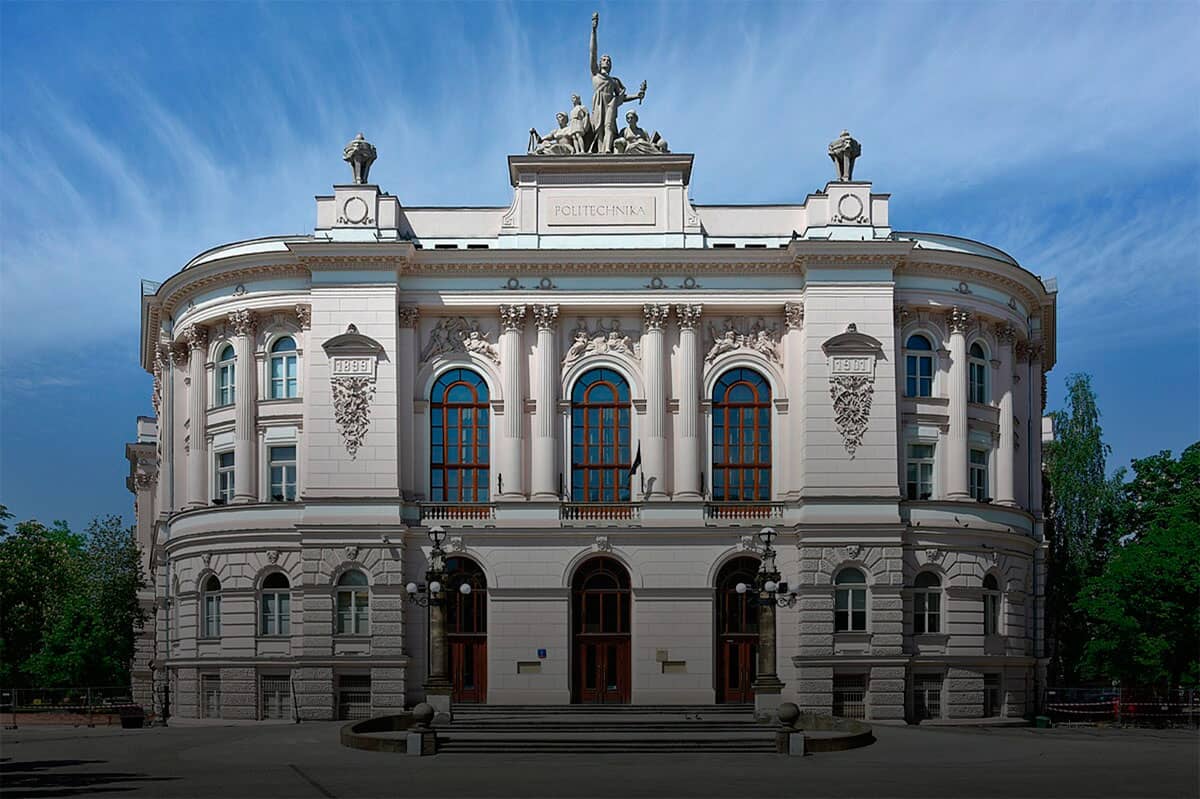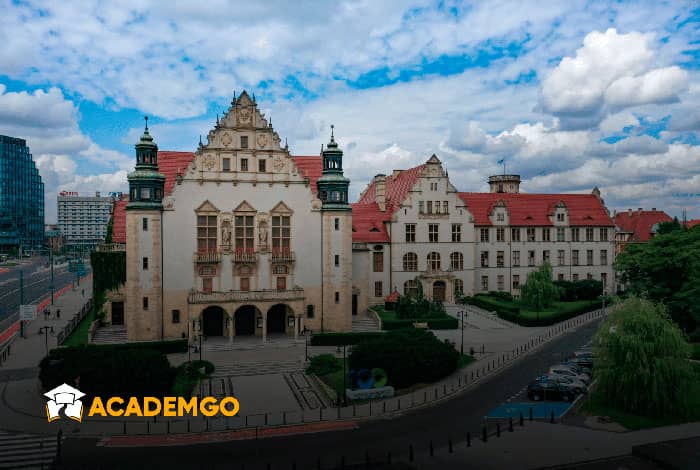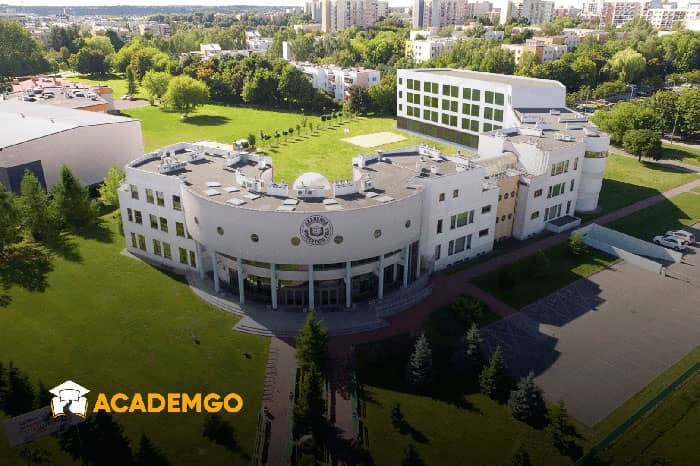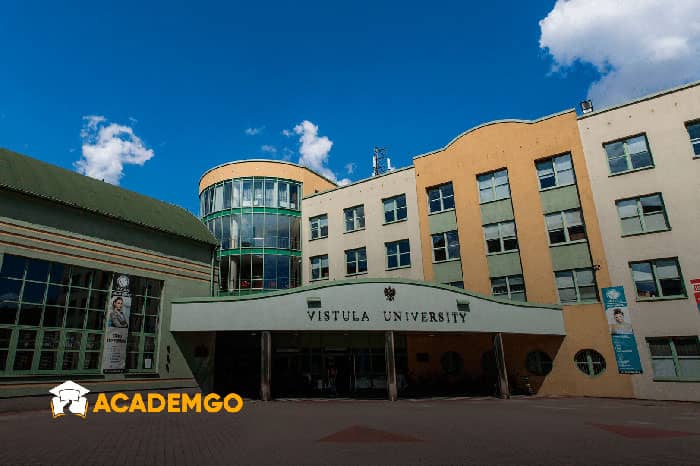
Private Universities in Poland: List, Tuition Fees & Diploma Recognition
When it comes to studying abroad, many applicants immediately consider public universities, assuming they are more prestigious. Private universities are often seen as “second-tier” or too expensive. In reality, this is an outdated myth — especially in the case of Poland.
Each year, more and more international students choose private universities in Poland, and there are good reasons for that: easy admission, a wide range of programs in English, high academic standards, flexible study formats, and globally recognized diplomas. This article explains the real advantages of private universities and why they should not be underestimated.
Debunking Myths About Private Universities
Let’s take a look at some of the most common myths about private universities — and why they’re not true:
Private universities offer poor-quality education.
❌ In fact, many private universities in Poland employ the same professors as public universities — many teach at both. Programs are based on European academic standards, fully accredited, and recognized by the Polish Ministry of Science and Higher Education (MNiSW).
Employers don’t value degrees from private universities.
❌ Degrees from any accredited university in Poland, whether public or private, are recognized throughout the EU and other countries, as long as they meet academic standards. Moreover, private universities often focus on practical, career-oriented education, which is highly appreciated by employers.
Private universities are only for the rich.
❌ In reality, the tuition fees at private universities are often comparable to public institutions, especially for English-taught programs. The average tuition fee in a private university in Poland starts from 2 500 euros per year, which is 2–3 times cheaper than similar programs in Western Europe.
Why Private Universities Are a Great Option for International Students
Private universities in Poland are designed with the needs of international students in mind — from the admission process to on-campus support. Here are the key advantages:
✔️ English-taught programs — a wide selection of study fields with no need to learn Polish.
✔️ No entrance exams — admission is based on documents only, with the option to apply online.
✔️ Variety of programs — including IT, logistics, tourism, marketing, psychology, and international relations.
✔️ Flexible study formats — full-time, online, and hybrid courses available.
✔️ Fast visa invitation process — helps save time and avoid delays.
✔️ Student support services — academic advisors, help with adaptation, housing, and part-time jobs.
That’s why many students choose private universities in Poland as a clearer, easier, and more flexible path to European education.
Comparison: Private vs Public Universities in Poland
Admission and accessibility
Private universities offer one of the easiest and most straightforward admission processes: no entrance exams, only your high school diploma, a motivation letter, and proof of language proficiency (or the option to complete a Foundation Year). Applications can be submitted online, and acceptance letters are issued quickly — making it easier to apply for a student visa. This makes private universities especially convenient for international students who want to avoid bureaucracy and start studying without unnecessary stress.
Public universities, on the other hand, often require entrance exams, especially for competitive programs. The number of available spots is limited, and competition among applicants is high. In addition, admission may involve nostrification of your diploma and communication in Polish, creating additional challenges for international students.
Language and study format
Private universities are known for offering a wide range of English-taught programs, especially in fields like business, IT, logistics, marketing, tourism, and psychology. Many also provide hybrid and online formats, giving students more flexibility. This is ideal for those who want to combine studies with part-time work or study in Poland without knowing the Polish language.
In public universities, most programs are still taught in Polish. Some English-language courses are available, but they are limited and more competitive. Flexible formats (such as online or hybrid study) are rarely offered, and the learning model tends to be more traditional and academically structured.
Facilities and student support
Private universities typically offer modern campuses, digital platforms, and interactive teaching methods. They place a strong focus on supporting international students — with visa consultations, academic advisors, housing assistance, and adaptation support. This makes studying more comfortable and accessible from day one.
Public universities often have older infrastructure and more complex bureaucratic procedures. Support services are limited, especially in English, which means international students often need to solve logistical issues on their own.
Tuition and value
Tuition at private universities for English-taught programs typically ranges from 2 500 to 4 000 euros per year, while Polish-language programs start from 1 800 euros per year. Students may be eligible for discounts up to 15% if they apply through official partners like AcademGo, and many institutions also offer scholarships and Erasmus+ opportunities.
Public universities offer lower tuition — starting from 1 200 euros per year for programs in Polish — but admission is more difficult. English-language programs, especially at the master's level, may cost from 2 500 to 3 500 euros per year and often come with less flexibility and support compared to private universities. As a result, the cost difference is often balanced out by the easier application process and stronger student support offered by private institutions.
How Much Does It Cost to Study at a Private University in Poland?
Tuition at private universities in Poland remains affordable even for international students, especially compared to institutions in Western Europe or the United States. The average cost of English-taught programs ranges from 2 500 to 4 000 euros per year, depending on the program, university, and city. Programs in Polish are cheaper — starting from 1 800 euros per year, but they require at least a B1 language level or completion of a preparatory course.
Despite the common myth that private universities are always expensive, many offer a flexible system of discounts, particularly for students who apply early or pay for the full academic year in advance. When applying through AcademGo, students can access official discounts of up to 15%, and some universities also offer academic or need-based scholarships.
An additional benefit is that many private universities participate in international exchange programs like Erasmus+, which allows students to complete part of their studies abroad free of charge. Many institutions also reward students for academic success, engagement in campus life, or volunteer work — which can help reduce tuition fees for future semesters.
Where Is It Easier for International Students to Apply?
For most international applicants — especially those who don’t speak Polish and want to avoid entrance exams — private universities in Poland are the ideal choice. Here’s what you need to know:
✔️ No entrance exams required. You only need to submit your high school diploma, motivation letter, passport copy, and a photo. Some universities may also request an online interview or a simple language test.
✔️ Language requirements: for English-taught programs — IELTS score of 5.5 or higher, or a university’s internal test; for Polish-taught programs — B1–B2 level or enrollment in a Foundation Year.
✔️ All documents can be submitted online. AcademGo assists with preparing, translating, and submitting your application directly to the university.
✔️ Flexible deadlines. Many private universities operate on a rolling admission system, which means you can apply and be accepted at any time of the year.
✔️ Fast visa invitation letters. Most private universities send official visa invitations within 2–7 days after approval, helping you submit your visa application on time.
✔️ No diploma nostrification required before admission. Most universities accept your documents as-is, and nostrification can be completed after you arrive and begin your studies in Poland.
Top 5 Private Universities in Poland
If you’re considering studying at a private university in Poland, pay attention to institutions that have earned the trust of students from around the world and offer high-quality academic programs at affordable tuition rates.
Frequently Asked Questions









